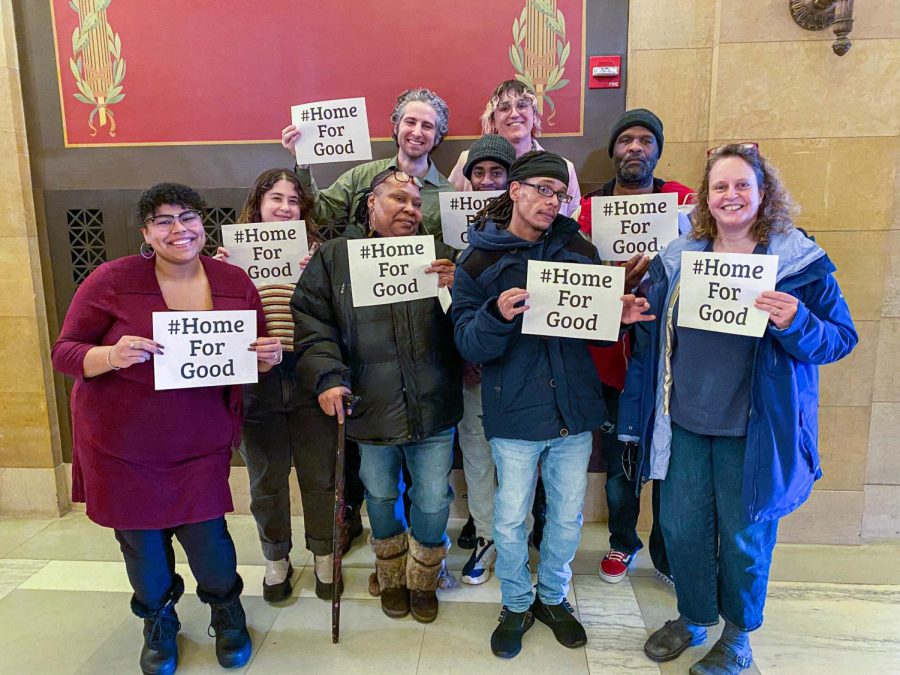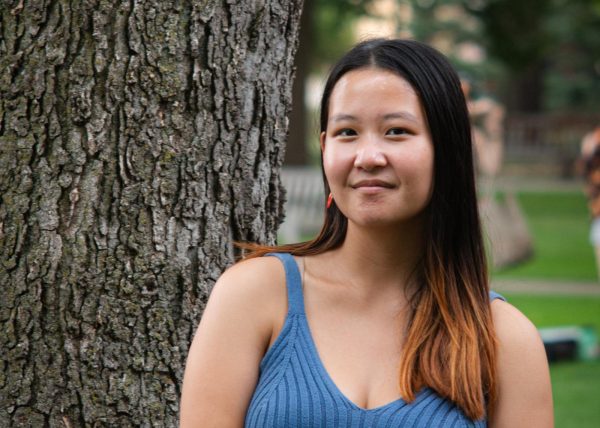Critiques of the Minnesota prison system & work towards reform
April 27, 2023
Macalester’s location and the utility of the liberal arts education are both something that the school heavily advertises, but students often get caught up in the “Macalester bubble”. With the social, educational and employment environments changing so rapidly over the course of the past few decades, it can be difficult to figure out as a college student what you want to do, what you are passionate about and how to get there.
David Boehnke ’07 has been questioning the efficacy of oppressive institutions since he first arrived at Mac, where he struggled with the ongoing question of how to align his goals with what institutions are actually doing and make changes to ensure overall success. Through his personal experiences throughout middle and high school, Boehnke was forced to confront some difficult life circumstances, causing him to ask questions that he likely would not have before.
“My high school, which is a well-funded high school in Ann Arbor, Michigan, has an incredibly extreme school to prison pipeline,” Boehnke said. “Talking about that … with other kids in high school and then bringing that to the adults and basically being told that wasn’t going to change in one of the most liberal places in the country was pretty radicalizing.”
Boehnke emphasized how the discrepancy between what institutions say and what they believe makes working towards change difficult, and how this further complicates organization and partnership to ensure that all succeed. Currently, he works with the Twin Cities branch of the Incarcerated Workers Organizing Committee (IWOC).
“Our current campaign is about getting the Department of Corrections [to allow incarcerated people] to go out to earn to come home early, which they have the authority to do and are not using,” Boehnke said.
This program, called work release, is long standing and has demonstrated success in easing societal reintegration by providing incarcerated individuals the opportunity for stable employment and housing. It is codified in Minnesota State Law 244.065, which states that incarcerated people can qualify for this program after serving half of their sentence. However, the Department of Corrections (DOC) rarely brings people into the program until the final 12 months of their sentence, at most.
“Right now, a quarter of people who were released from prison last year were homeless,” Boehnke said. “[Through working in the program], those transitioning out of prison will have savings, work experience and transportation so they can get housing and continue their lives and succeed.”
IWOC’s program, called Home for Good, has created a bill, HF2282, which will require the DOC to allocate $15 million to the work release program over the next two years. It was recently discussed at a hearing by the Public Safety Finance and Policy Committee.
“We want to make sure that the new legislation they are passing is followed through in practice as well as in state [law],” Boehnke said.
IWOC itself is composed of a variety of individuals from different backgrounds, including prisoners, former prisoners, family members and other supporters. The group organizes for the goal of drastically reducing and overhauling the prison system in Minnesota.
“The people who care the most about changing the prison system are the people who are incarcerated, and the people who care the second most are the people who love them,” Boehnke said. “The biggest reason the prison system doesn’t change is because people outside of prison don’t care to involve themselves in a constant human rights disaster.”
As a student at Macalester, Boehnke was briefly involved with a prison abolition group towards the end of his time at the college. Through a course he took on schools and prisons at Mac and getting his teaching license a few years ago, he was able to connect more organically with racial and social justice through the education system as a person not initially from Minnesota.
“I ended up doing a bunch of odd jobs and getting sucked into community and union organizing,” Boehnke said. “I was at the point where I’d learned some things about organizing and was excited to see where this would come back into my life, and now it’s been a big part of my life for the past eight or nine years.”
Looking to the future, Boehnke and IWOC want to move toward abolishing the prison system completely. Common justice, which is a felony diversion program for violent crime in New York City, allows the victim of the crime to choose whether to send the perpetrator of the crime into the prison system or through this diversion program, which requires the person to repair the harm that they have caused as much as possible.
“I think this is a really great example of how creating safety and emphasizing punishment are often on the opposite ends of the spectrum,” Boehnke said. “Often the people who are most impacted by the situation would make different choices [aside from prison] if they had other options on the table.”
The founder of the common justice program is a survivor of violence herself. She highlights that when people choose to send their attacker through this program, it is not because they are merciful, but because they do not want others hurt by either this person or by the system.
“Is the system supposed to make us more safe? Or is the system supposed to harm people who’ve done harm?” Boehnke questioned. “Of course, everyone is responsible for their actions. But are we ever going to break cycles of violence? Are we just going to continue them?”
For more information, please email [email protected] or [email protected] or go to the Twin Cities IWOC website at https://sites.google.com/view/tciwoc/home.













